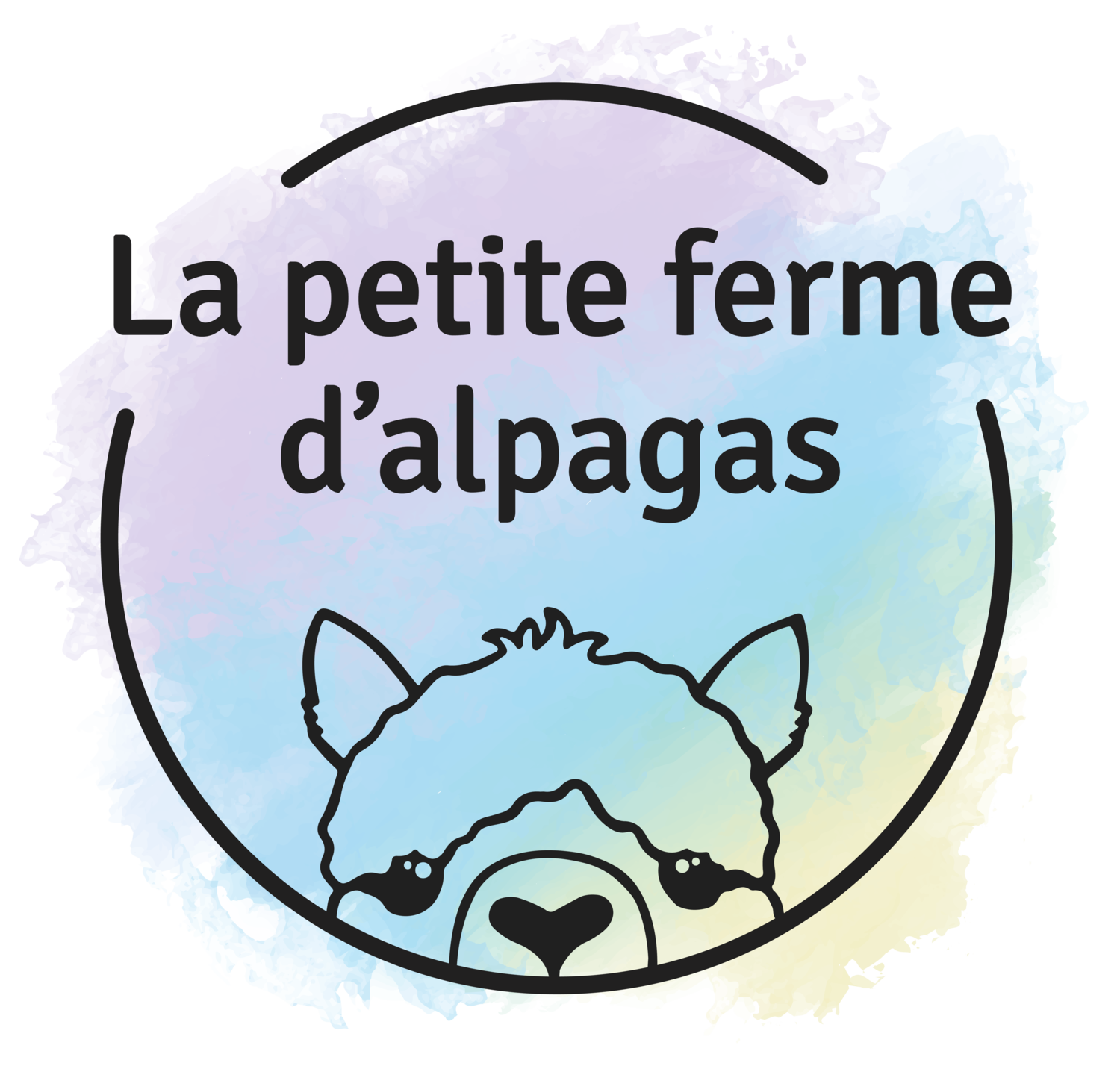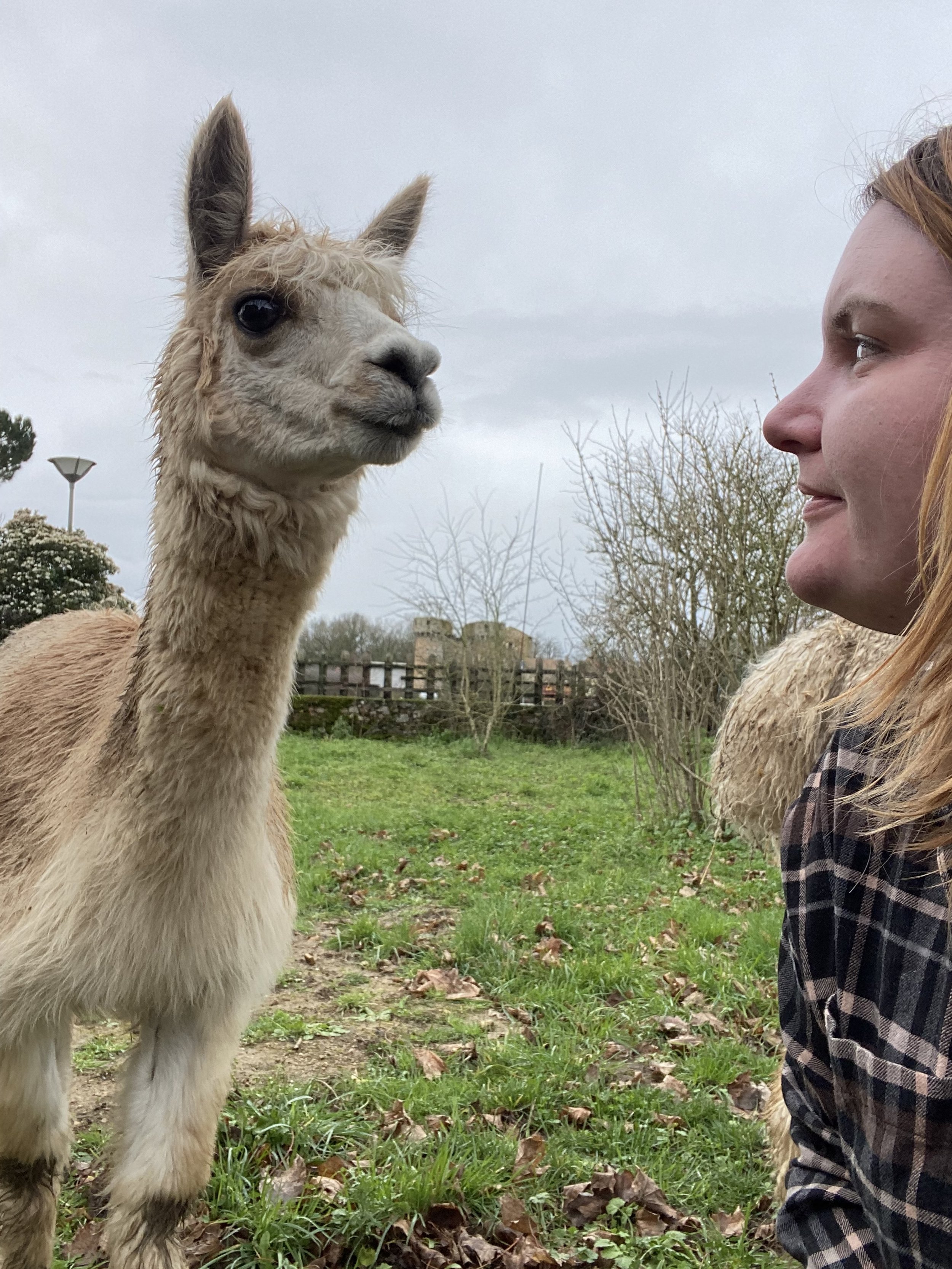Alpaca knowledge is a journey
No matter how long we’ll have had our alpaca farm, we will always be continuously researching and learning.
Unlike traditional farm animals, there’s not untold amounts of knowledge and research into alpacas. There’s a lot, and whilst we know a decent amount, enough to teach responsible alpaca husbandry, for us I think there’s still a lot to know and carry on learning, but the reality is if an animal is not in the mass human food chain, there’s not so much known about it compared to well-known livestock.
It is getting better though, but every now and then, something really trips us up and we scour the internet and reach out to our peers an mentors to help us care for our animals. It’s worth noting that we continue to keep memberships with alpaca societies and regularly attend new or refresher workshops and training to make sure we can give the best care to our herd.
Towards the end of January, we could visibly see Blaze shivering. A little unusual for our heard. Alpaca wool is four times warmer than that of sheep’s wool as each individual fibre is hollow, so gives great insulation to them. Plus, think about the millions of alpacas living in the Peruvian Andes in prolonged temperatures which are much colder than mid-west France winters.
We checked over Blaze. The usual health checks such as the colour of her eye membrane to make sure she wasn’t anaemic, that she was walking, eating and ruminating perfectly normally. She was. So, we decided she just needed a little help with her warmth and reached out to a friend who was able to lend us a miniature pony rug. We’ve since bought her one specially made for alpacas.
Keeping an eye on Blaze, we noticed her cushing (laying down) a little more than the others. Although perhaps that was normal, were we worrying about nothing? This was also something to consider! She then grazed, ate her daily supplement meal, ate the additional fosfobeet we give her for extra energy. She took the monthly vitamin D dose well. She had normal poos and also we had only just received the results of her worm egg count the previous week - normal and treated for a small count. We continued to monitor her closely.
Walk the alpacas
Would you like to walk the alpacas around a 13th century chateau?
Walk the alpacas around the chateau
It’s a wonderful experience with the calming affects of spending time with the animals and the beautiful Chateau de Sanzay
Will let the herd out of the barn a few mornings after and came in to let me know that Blaze was coughing. He showed me the video and I argued it was hiccups. Something she seems to get often. We both went out and observed them for sometime and she had hiccups once more - we both agreed (finally) that it was definitely hiccups. When I searched my memories I thought about how she gets these about twice a month, that I’ve seen. Our house-sitter told us she had them one day when we were away in November.
And so I got to google - alpacas with hiccups. After scrolling by “cute alpaca with hiccups” videos on YouTube, I found an interesting piece that discusses a nerve condition that can affect breathing, leading to hiccups as their diaphragm muscles are affected by the nerves around them. They link some parts to stress too. This is starting to make some sense. About a year ago when Blaze’s daughter Blossom was 11 months old, it was necessary to separate them for weaning, for Blazes health. At that time, Blaze made some nasally sounds and we panicked about her potentially having pneumonia. The vet call out and examination showed there were no issues with Blaze’s lungs, no pneumonia, and the vet considered that she was stressed to be separated from her baby. This made sense and we were relieved and a little embarrassed for the vet call out too.
Since then, we’ve observed a few more nasally/growling alpaca noises which, whilst we were concerned about, put it down to her “being Blaze” as sometimes that is the answer.
Secluded, peaceful, private, revitalising, and wholesome - these are just some of the words that describe the unforgettable experience that Donna and Nick had at La petite Ferme d’Alpagas Sanzay during their stay.
From witnessing ‘Buddy’ the baby alpaca being born to exploring the surrounding areas, their 6-night stay was filled with many precious moments.
We are thrilled that they had such an amazing time and we can't wait to welcome more guests to our farm!
The internet article mentioned the nerve condition was a result of a lack of vitamin E. This is something that had also been flagged by a peer in the same week. Their deficiencies was in Vitamin E and also Selenium which was causing a muscle condition. Selenium is a common deficiency in alpacas kept outside of Peru as it’s not a mineral found in our earth in Europe. This mineral is supplemented in the feed we give the herd.
Help from the vet.
I discussed the article, hiccups, shivering and growl noises with one of our mentors who has kept alpacas for more than 2 decades. The nerve condition was not something he’d heard of before, but agreed we could be right and we should try giving a vitamin E and selenium supplement.
We bought the supplement from our vet, who also advised us of the safe dosage for alpacas. We also requested a physical examination of Blaze and the vet thoroughly listened to her lungs, and also undertook an ultrasound of her lungs looking for any sign of legions too. Thankfully, nothing untoward was found.
After a few days of us giving Blaze the vitamin E and selenium injection, she really brightened up. She was holding herself higher, was laying down less during the day and we noticed a huge improvement in her laboured breathing.
We’ve since learned this is a supplement that Blaze requires regularly. We cannot give this more often that once every 4 weeks, due to risk of mineral overdosing, and we notice her symptoms returning sometimes after 3 weeks. We’re so pleased this worked for Blaze and wanted to share the knowledge with others, and also reach out to see if there are any other possible treatment and causes, if you know, please contact us as we’re eager to know more and more!










A gift for them that lasts all year, giving a teddy and adoption certificate on the day of celebration with the visit to the farm to meet their adopted alpaca and seasonal newsletters to look forward to!
The year-long adoption let’s you be a part of our journey and included in key milestones. As a supporter of the farm you help us keep the high standards of welfare the alpacas receive; great nurishment, enrichment activities, treats and plenty of interaction time.
Your adoption includes:
A personalised adoption certificate
A personal factsheet about your alpaca
Seasonal email updates from your alpaca
An alpaca shaped wooden keepsake which includes a piece your alpaca’s fleece
A voucher to visit the farm to meet the alpacas (can be exchanged for 10 minute personal video call, or, a branded keychain)
*This is an administration package named “adoption”, there is no ownership of the animals with purchase
The package comes flat-packed, with instructions for assembly. Colour of teddy variable to photos; brown, caramel, white, cream.
If you adopt an alpaca with us, you’re not only getting yourself, or someone for a gift, a year long subscription to newsletters all about your alpaca and the farm, you’re supporting this small business and becoming a part of our journey. As well as this, some of the possibilities your adoption fee pays for and gives your alpaca are:
Feeds her special nutirents alpacas need for 1 year
Her annual injection and any necessary parasite treatments
3 fence repairs to keep her safe
2 cans of petrol to help us maintain healthy pasture for her
10 bales of hay, which will feed her for the duration of the adoption
7 bags of carrots… which is too much for one alpaca to eat in a year, but given the chance, they would!
A paddling pool and hours of splash and cooling-down fun
1 hour of 1-1 training to help her with trust and confidence to ensure safe and necessary health checks